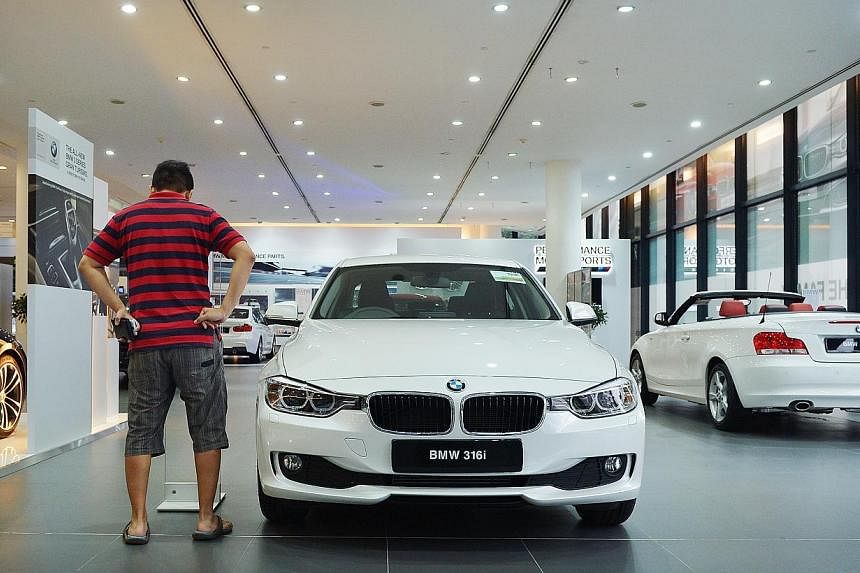A new test to verify the engine power of cars before they can be sold here is turning into a potential trade issue.
German carmakers have raised concerns with the Singapore Government about the so-called dynamometer test, which they claim runs counter to a proposed free trade agreement (FTA) between Singapore and the European Union.
The Straits Times understands that members of the Singapore- German Chamber of Industry and Commerce (SGC) and a senior German government official have broached the subject on separate occasions with the Ministry of Trade and Industry (MTI).
Spokesman for the SGC's automotive committee Klaus Landhaeusser said: "As businesses, we're concerned with how the new regulation was introduced, and what else will come later."
Mr Landhaeusser said: "(Trade and Industry) Minister Lim (Hng Kiang) was very supportive. He referred us to the Ministry of Transport, which told us the Land Transport Authority (LTA) will get back to us on this."
The Transport Ministry did not comment, but the MTI said the engine power verification requirement "is consistent with Singapore's FTA obligations".
The LTA announced last month that cars meant to be classified under the Category A certificate of entitlement (COE) will be tested to verify the engine power outputs declared by their manufacturers. From October, cars producing between 81kW and 97kW in engine power will be tested on a chassis dynamometer - a "treadmill" for cars.
The move comes after a new COE classification was introduced in February. Besides a 1,600cc cap on engine size, cars in COE Category A must not produce more than 97kW or 130bhp.
This was meant to level the playing field for sellers of mass-market cars, who in recent years have been edged out of Category A by luxury brands such as Mercedes-Benz and BMW. But, dealers of premium models began bringing in cars producing less than 97kW to maintain their share of the Category A market.
Observers said the dynamometer test and related checks - which will lengthen the approval period for cars to four months (from four weeks previously) - could be construed as a non-tariff trade barrier.
According to a draft of the EU-Singapore FTA, "Singapore shall accept on its market as compliant with its domestic technical regulations and conformity assessment procedures, without further testing or... requirements to verify" vehicles that have already been approved by EU regulators.
Mr Landhaeusser said: "We don't understand why this dynamometer test is necessary. It's not feasible for manufacturers - be they German, Japanese or Korean - to adjust power outputs just for the Singapore market." He said it will delay the arrival of new cars and add to costs.
Each dynamometer test is expected to cost between $500 and $1,000, and 30 to 40 cars are expected to be tested each year.
Mr Jeff Mannering, managing director of Audi Singapore, which is a member of the SGC, said: "Basically, we're being called liars."
The MTI said "only about 14 per cent of all Category A applications will be impacted" by the dynamometer test. But motor companies said that as technology advances, more small cars will fall into the 81kW to 97kW bracket.

